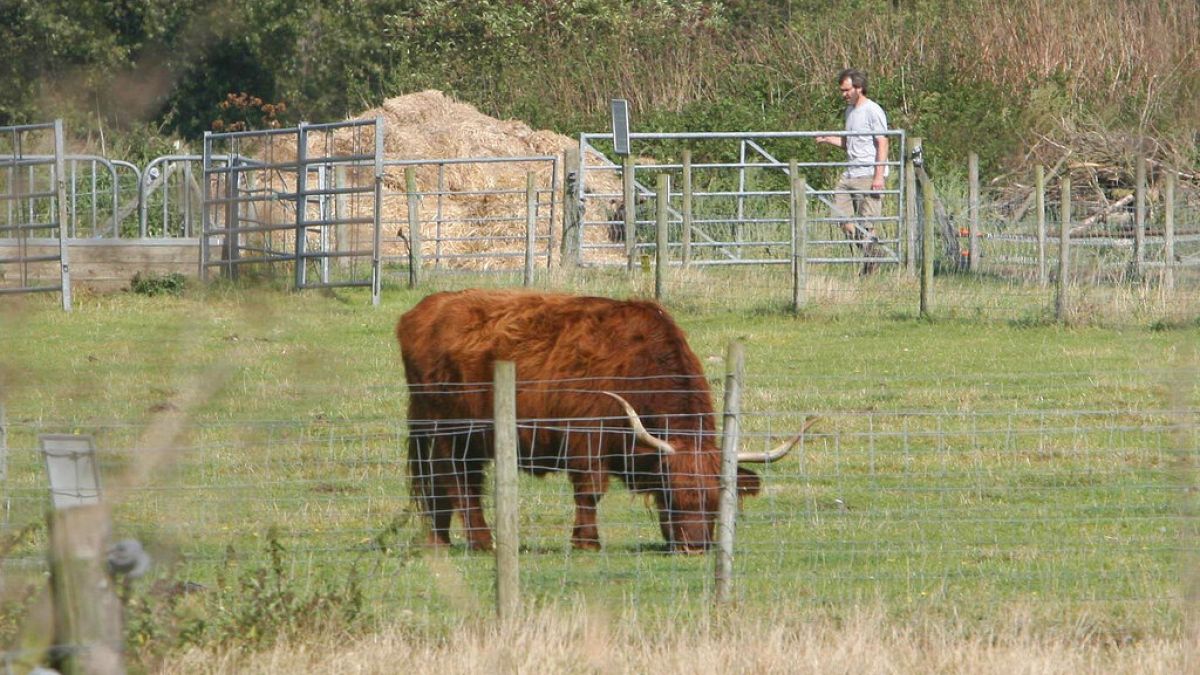A new variant of bluetongue disease, a potentially fatal illness for sheep and cattle, has been spreading rapidly across Europe. The virus is transmitted by small midges and can cause symptoms such as mouth ulcers, difficulty breathing, fever, and even death in animals. In the French department of Isère, an epidemic of the new strain has affected 31 animals, with suspicions of around a hundred more cases. Sheep farmer Cédric Ruzzin in Poliénas has already lost 55 out of 150 animals to the disease. The late recognition of the virus by farms and local authorities has allowed it to spread rapidly within herds of cattle, making prevention difficult.
The new strain of bluetongue virus first appeared on Dutch farms before spreading to countries such as Germany, Denmark, Belgium, Luxembourg, and now France. In Belgium, over 500 farms have been impacted by the virus since it was first discovered in October 2023. The severity of the outbreak has prompted Belgium’s Federal Minister for Agriculture David Clarinval to declare the sector in “crisis.” To combat the spread of the disease, the French government has distributed 6.4 million doses of vaccine to the most affected areas, with 1.1 million doses reserved for sheep and 5.3 million for cattle. Regulated zones have also been established around affected areas in an attempt to contain the outbreak. Despite these efforts, some farmers like Aurore Tosti, Director of Isère Health Defence Group, feel that vaccination may be too late for certain farms as the disease has already taken hold within the herds.
The symptoms of the new bluetongue virus strain have caused significant distress for both farmers and animals, with farmers describing weight loss, drooling, swelling, and high fevers in their livestock. The inability to directly treat the disease means that medical professionals can only alleviate the symptoms and hope for recovery. The late recognition of the virus by farms and local government officials has allowed it to spread quickly throughout herds of cattle, heightening concerns of a larger outbreak across Europe. The rapid transmission of the new strain via midges has made containment and prevention particularly challenging for authorities.
The spread of the new bluetongue virus strain has raised alarms in various European countries, with Belgium and France particularly hard hit by the outbreak. The impact on farms has been significant, with over 500 farms affected in Belgium alone since the virus was first identified in October 2023. The French government’s response to the outbreak includes the distribution of millions of vaccine doses to combat the virus in the most affected regions. However, the late recognition of the disease and subsequent spread within herds may limit the efficacy of vaccination efforts, leaving some farms with few options beyond symptomatic treatment for affected animals.
The outbreak of the new bluetongue virus strain highlights the challenges faced by farmers and officials in combating infectious diseases in livestock. The rapid spread of the virus from Dutch farms to other European countries underscores the need for vigilance and prompt action in identifying and containing outbreaks. The urgency of the situation has prompted calls for the agricultural sector to be declared in crisis, with farmers struggling to cope with the loss of livestock and the economic impact of the disease. Vaccination efforts may provide some relief, but the late recognition of the virus means that some farms may already be beyond help, raising concerns about the long-term effects of the outbreak on the livestock industry in Europe.











